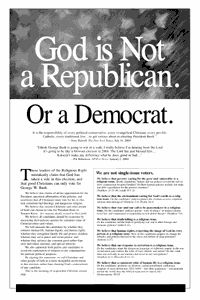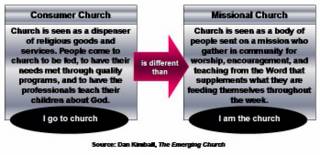What are the Christian guidelines for a “just war”?
Over the centuries, Christian thinkers have worked out what has been called the “Just War Theory” in order to guide governments when they feel compelled to go to war. It was articulated in the 400s by Augustine when he was giving Christian guidance to the Roman General Boniface, who was later to defend Carthage against the Vandals. He told Boniface that war is not a matter of choice but of necessity, forced on us by the need to control violence in a fallen world. It is waged only to restore peace, so that we are always to be the “Peacemaker.” It must seek to limit its violence to only what is needed in resisting and deterring aggression. It must extend mercy to the defeated and the captive. Augustine even said that the Christian must repent in advance to going to war, because the ambiguities of the situation and wartime passions will always confuse moral issues and intentions since the heart is deceitful.
Here is an outline of what Just War Theory is. It has been held by Christians that if a war does not seek to meet all these criteria, a Christian has the right to say “no” to entering that particular conflict. A Christian is first and foremost a member of God’s kingdom before he or she is a member of any country. Our citizenship is in heaven.
It is therefore never permissible for a Christian to say, “My country, right or wrong!” The Nuremburg war crimes trials after World War II correctly set the tone for every individual—obedience to orders does not relieve a subordinate of personal moral responsibility. If you feel that your country is not being just in its war, you must object. Our loyalty is ultimately not to our nation, our president, or our government, but to the Lord Jesus Christ. We are to obey God rather than men (Acts 5:29).
We should echo what David Torbett, Visiting Professor of Philosophy and Religious Studies at Mount Union College, recently said in a lecture on this topic: “I am hoping for another kind of just peace: not a Pax Americana, but a peace in which the US and the world accept the limitations of the just war principles—a relative peace, in which we win the war on terror without lapsing into terrorism ourselves.”
Again, I am not saying that our country is right or wrong now in our war with Iraq—I am not peddling some hidden agenda. What I am saying is that each of us must choose where we stand. It is wrong to caricature those protesting this war as one thing or another when some protestors are actually following their heart-felt Christian convictions. You may disagree with them, but you should uphold their rights to say what they feel compelled to say. Each of us will decide differently—God has given each of us the responsibility to think through these issues on our own, and to follow our conscience. This is why we should have laws that allow people to opt out of war due to “conscientious objection.”
So, here are the criteria of “Just War Theory”:
Criteria for going to war:1. Just Cause. All aggression is condemned; only defensive war is legitimate.
2. Just Intention. The only legitimate intention is to secure a just peace for all involved. Neither revenge nor conquest nor economic gain nor ideological supremacy are justified.
3. Last Resort. War may only be entered upon when all negotiations and compromise have been tried and failed.
4. Legitimate Authority. Since the use of military force is the prerogative of governments, not of individuals, a state of war must be officially declared by the highest authorities.
5. Limited Objectives. If the purpose is peace, then unconditional surrender is an unwarranted objective.
6. Lesser of Two Evils. The evil of not going to war must be greater than the evil of the war itself. In other words, if allowing the evil to persist is worse than fighting, then war is permissible.
7. Probable Success. Since many lives will be lost and much suffering will occur, there must be a reasonable belief that the war will be successful. This requires a clear definition of what success will be and how it will be measured.
Criteria for waging war:1. Proportionate Means. The weaponry and the force used should be limited to what is needed to repel the aggression and deter future attacks—to secure a lasting peace. Total or unlimited war is ruled out.
2. Noncombatant Immunity. Since war is an official act of government, only those who are officially agents of government may fight, and individuals not actively contributing to the conflict (including POWs and casualties as well as civilian nonparticipants) should be immune from attack.
That, in a nutshell, is how Christians have contributed to the ethics of war. Notice, the key to “Just War Theory” is PEACE! The only proper end in going to war is to secure a just peace for all involved.
But, as you have noticed, we call this the “Just War Theory.” It was developed in the 400s (Augustine) and was honed in the middle ages (Aquinas). Such people as the Spanish theologian Francisco de Vitoria developed the theory further when he condemned his king’s conquest of the Native Americans. The theory has been the guide for such advances in warfare as the Geneva Convention and other international agreements, and has shaped the regulations for war in the United States and elsewhere.
But, as we seek to properly utilize “Just War Theory” in the 21st Century, a new question about it needs to be asked.
Can “Just War Theory” work in the 21st Century?Ever since Napoleon, warfare has taken a terrible turn. War tactics have changed so as to be able to totally wipe out an enemy. And we now live in an age where nuclear capabilities and Weapons of Mass Destruction make “Just War Theory” even more difficult to follow. Add to that the fact that rogue states are developing these weapons, and we find ourselves in a situation in which, if we wait to be attacked first before we can engage in war, massive lives will be lost. In light of the September 11 terrorist attacks, a new question has been raised: “If a government is legitimately threatened by another state by its Weapons of Mass Destruction, is it permissible to engage in a “Preventive War”?
In other words, is that stretching the Just War Theory too far? Does a “Preventive War” meet all the criteria—especially “just cause.” This has been the debate over the last several months concerning the American push for war with Iraq in the United Nations.
Again, I am not trying to tell you what to think, but how to think on this issue. I am merely presenting you the criteria for Just War, and now I ask you to decide for yourself whether a preventive war fits into it. If I know that imminent danger is coming that will kill many people, is it defensive to strike first?
Also, because this is a sinful world, some have contended that just war ideals are too idealistic. They say that it is not always possible to limit violence or to protect noncombatants or to fight only for defense, as the just war theory prescribes. And this is true. We all know that no matter how “smart” a “smart bomb” is, it will still inevitably kill noncombatants. War is different today than when people used to pack picnic baskets and go out to watch the battle on the war grounds from a safe distance. As much as we try to minimize it, innocents always die.
The vast destructive power of today’s weapons (including our missiles and our enemies’ biological or chemical or nuclear weapons) poses special difficulties for Just War Theory.
But, I believe that if we abandon the ideal simply because it is an ideal, we will not have any limits to our destructive power whatsoever. So, I maintain that we must hold true to Just War Theory, and continue to judge our decisions concerning warfare based upon it.
What is the Christian’s responsibility in this or any other war?In light of all I have said, I obviously contend that we must make our own personal decisions on war and our participation in war based on biblical mandates and the Just War Theory.
Beyond that, and above all else, we must pray! Anything else we would do will have less effect on the outcome than our heartfelt and consistent prayers. Here are some suggestions:
Pray for our leaders (the President, the cabinet, General Tommy Franks, and all who are in charge on the field of battle), that they will make wise and just decisions at every juncture.
Pray for the men and women who are serving in the Armed Forces that they would be protected from harm.
Pray for the families of those whose loved ones are off fighting in this war—that they will be comforted and strengthened at this time.
Pray for our enemies. The purpose of our going to war is never to obliterate our enemies, but to secure a just and lasting peace for all involved.
Pray for the non-combatants that they would not be killed or injured.
Pray for the Christians in Iraq. Not only are their lives in danger, but their work of proclaiming the Gospel is in danger since in the minds of many that they are trying to reach this is an aggression of a Christian nation against a Muslim nation. It will be that much more difficult to convince people that Christ is about love and peace when they attempt to show Christian love after the war through care ministries in the midst of the rubble of their cities.
Pray for the non-combatants in America and around the world, that we would be protected from terrorist attacks.
Pray for a just solution to rebuilding Iraq. We as a nation are spending a ton of money to wage this war (some estimate that this war will cost well over 100 billion dollars!); we had better be willing to spend more than that to build Iraq up again and give the people a new nation. Jesus spoke of going the extra mile. In war, maybe he would say that we should spend the extra dollar. We need to be willing to pay whatever it will cost to rebuild Iraq. As Brian McLaren wrote, “We must remember that after the fighting ends: there is a high cost for being cheap. If we wound but do not heal, the memories of our enemies will keep track of the debt, which will accrue a high rate of interest, perhaps for decades if not centuries.”
Pray for the promised dream to finally come true. God told us through Isaiah that there will come a time of perfect peace, when nations will “beat their swords into plowshares and their spears into pruning hooks” (Isa. 2:4). While we watch the nightmare unfold on the nightly news programs, pray that the dream will quickly begin to unfold with the return of Christ.
Pray that, in the meantime, we can move beyond this current war so that we can spend our time and energy on other causes. The Christian is a citizen of the world as well as a member of the kingdom of heaven. That means we have responsibilities to live in both for the glory of God and we have at our disposal many resources to bring about some peace in the present age. Christ died for all people, and it is dangerous to allow particular political problems to poison attitudes toward other racial and national groupings. Christians need to take the lead in the effort to combat hunger and poverty and disease in the world. Christians need to proclaim that the Prince of Peace is real and that he has been here and he is going to return and that he offers peace right here and now in the hearts of those who will follow him.
Pray that we would never become so cold-hearted as to think war is ever anything but evil. Inside many of us is a desire to fight. That is not a bad thing, if you are fighting for an absolutely just cause. If you are believer, you will be on the side of perfect justice in the final battle against evil at the end of the age. But we must accept that all wars until then are not perfectly just, there are complexities that make certain aspects of what is happening today impure.
And in our times, our bloodlust is evident. We see in our entertainment industry; and we see it in the way people talk and cheer about war. But this is inconsistent with God’s ideals. So, pray that we would love peace more than the excitement of war.
And lastly, and most simply,
Pray for PEACE! Some are praying for death and destruction—but that is not Christian. Pray for peace—that this war will end quickly.


 I offer the following insights from the excellent book,
I offer the following insights from the excellent book, 



















.jpg)
.jpg)








































